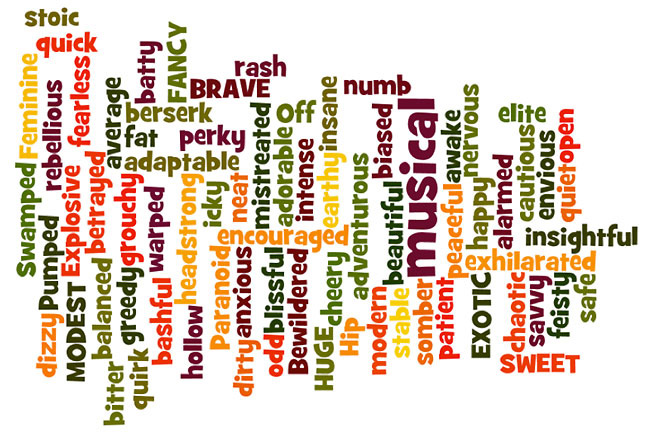
This lesson is about how words can have direct and emotional connections to every reader. Words and their meanings are important because you need to be able to clearly communicate your ideas and feelings in the most concise way. Think of the process that parents go through when naming their children. Some parents use names they have loved forever; others go to bookstores and research hundreds of baby names. Some parents may have an emotional connection to a name because it belongs to a respected person in the family or someone who inspired them. In the same way, companies also carefully choose the names of new products. The car industry, for example, names the newest models of cars, trucks, and SUVs to focus their audience on the features they want to emphasize.
The simple dictionary definition of a word is its denotation. This is the literal, unambiguous meaning of a word. A denotation of snake is “a limbless, slithering reptile without eyelids, sometimes poisonous.” It’s easy to remember what a denotative meaning is, because “denotation” and “dictionary” both begin with the letter “d.”
Other words that authors use have indirect, personal meanings. These words can affect readers in different ways. The term for this kind of meaning is connotation. An example of connotative meaning is the word “blue” (i.e., “I’m feeling blue”). It’s easy to remember what the connotative meaning of a word is because “connotation” and “connection“ both begin with the letter “c.”

Source: Burmese Python 4, Tambako the Jaguar, Flickr
Denotation = Dictionary (dictionary definition of a word)
Connotation = Connection (emotional associations attached to a word)
Here’s another way to understand denotation and connotation using the word “snake.”
- Snake, denotative use: Be careful hiking during the day; snakes may be out looking for water.
- Snake, connotative use: Ralph Fiennes’ character in the new movie is a total sellout, a cowardly snake.
Now that you have a basis for understanding denotation and connotation, here are some questions to ponder as you study this lesson:
- What do I already know about connotation and denotation?
- How can knowing a word’s connotative meaning help when reading a short story?
Think about what you already know about connotation and denotation from past English lessons, conversations with friends, what you have seen in movies, and what you have heard in music. If your favorite uncle gives you $25 every time he sees you, you are probably going to think favorably of him. You likely won’t describe him as “fat” to your friends, but you might say that he’s “tubby,” or if he’s a serious kind of guy, you might say he's “portly.” Knowing the difference between “fat,” “tubby,” and “portly” when you describe your uncle is important to your financial well being!
When you’re reading, it’s important to be able to distinguish words according to their emotional or cultural meaning. Your ability to do so can help you understand the author’s purpose or more about a character in a story. For example the words that a character uses can tell you their level of education, where they’re from, and their class. Connotation and denotation are a part of language and communication. Knowing the difference between these two words can help you understand the purpose of a passage you’re reading.